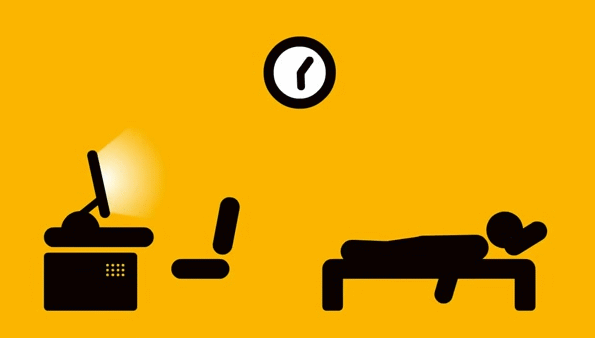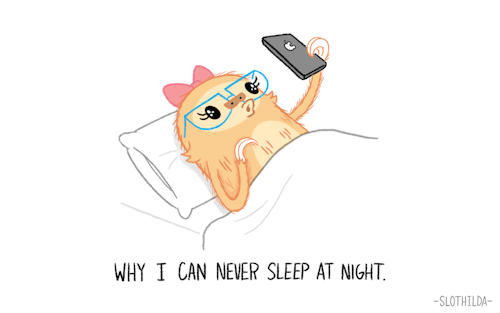As college students, sleep goes from being a nightly routine to an activity to fit into our schedules. Whether you stay up late to study for a test or to finish homework, sleep becomes the lowest priority. Even though it is important to spend more time on homework and studying, sleep deprivation can and will effect your day to day performance, including your performance as a student. WebMD states that “reducing your nighttime sleep by as little as one and a half hours for just one night could result in a reduction of daytime alertness by as much as 32%”. So if you are in need for a good night’s sleep, here are some tips to develop good sleeping habits.
1. Set a routine
Set a time for you to go to bed each night and a time to wake up each day, including the weekends. This will train your body to become tired around the time you set and make you more alert when waking up. This will ensure to give you a great nights sleep every night.
2. Skip the coffee
Don’t drink any caffeinated/sugary drink 4-6 hours before your bed time. Caffeine and sugar are stimulants and will prevent you from falling asleep.
3. Don’t drink and sleep
Even though alcohol is considered a depressant and may help you fall asleep, it can interfere with the quality of your sleep. It is always best to avoid drinking alcohol 4-6 hours before falling asleep.
4. Nap like a champ
Napping can seem like our savior, but napping for more than an hour can be detrimental to a good night’s sleep. Perfect your napping skills to making it less than an hour and at a time before 3pm, to ensure that you will be tired at bedtime.
5. Your bed is for sleeping - that's it
The only way you can teach your body to make the connection that your bed is a place for sleeping, is by making it a place for just that. If you are a person who watches TV, reads, works on their laptop and/or any other activity while laying on your bed, you aren’t allowing your body to make that connection.
6. Exercise, exercise, exercise
Exercising 4 hours before you fall asleep is great for a good night’s sleep. Not only does it wear you out, but also helps you to be fit and healthy.
7. Eat right, at the right time
Eating healthy is great for helping you fall asleep! Timing for food is important too, no one likes to go to sleep on an empty stomach, but its also important to not eat a huge meal right before bed either. If you are hungry before your bedtime, try eating a light snack or drink a glass of milk, since it contains tryptophan which naturally helps you fall asleep.
8. Make your sleeping space, a holy space
To make the most out of your sleep, make sure the room you sleep in fits your standards as a sleeper. If you like to sleep in a cold room; blast the A/C. If you like to sleep in complete darkness, invest in an eye mask or curtains to black out any source of light. If you don’t like to sleep in complete silence, turn on a fan to create a subtle white background noise. Find what room situations work for you and make them apart of your nighttime routine.
9. Stay off your phone
As much as the social media life calls to us from a tiny little screen, looking at a lit up screen in a dark room sends a signal to your brain that it's still daytime--making it more difficult to fall asleep. So catch some Z's instead of your friend's feed.






























